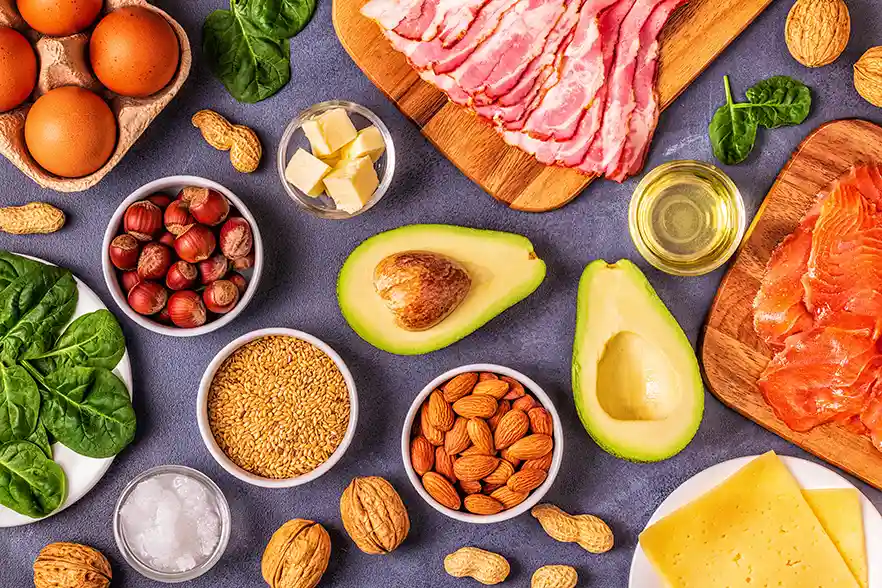When it comes to dietary fat, what matters most is the type of fat you eat. Contrary to previous dietary advice promoting low-fat diets, newer research shows that healthy fats are necessary and beneficial for health, written by Harvard T.H. Chan School of Public Health në “The Nutrition Source – Fats and Cholesterol”.
Effects of fat reduction
Substitution with Carbohydrates: When food manufacturers cut back on fat, they often replace it with carbohydrates from sugar, refined grains, or other starches. These carbohydrates are digested very quickly by the body, affecting blood sugar and insulin levels. It can result in weight gain and illness.
Recommendations for fats
Focus on Good Fats:
- Healthy "good" fats are unsaturated.
- Limit saturated fats and avoid "bad" trans fats.
- Fat is an important part of a healthy diet.
Types of fats
Unsaturated fats:
- Reduce the risk of disease
Foods rich in good fats include:
- Vegetable oils (olive, canola, sunflower, soybean, corn)
- Nuts
- Seeds
- Fish
Trans Fats:
- They increase the risk of disease, even when consumed in small amounts.
- Found mainly in processed foods with trans fat from partially hydrogenated oil.
- Thankfully, many of these foods have now been eliminated from trans fats.
Saturated fats:
- They have a negative effect on health compared to unsaturated fats.
- They should be consumed in moderation.
Foods that contain high amounts of saturated fat include:
- Red meat
- Butter
- Cheese
- Ice cream
- Coconut and palm oil
Tips for replacing fats
When reducing foods like red meat and butter, it is recommended to replace them with fish, beans, nuts, healthy oils and limit refined carbohydrates to maintain a healthier and balanced diet.






